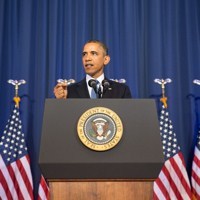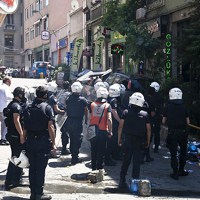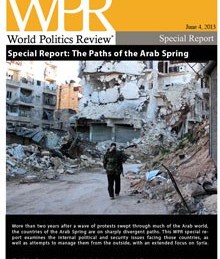
Over the past 12 months, Iran’s June 14 presidential election was shaping up as a struggle among reformers, nationalists and so-called principlists, who pledge allegiance to the supreme leader’s overriding authority. However, with calls for change rising from many Iranians, including the Shiite clergy, fundamentalist ayatollahs stepped in to assist their principlist allies. To “immunize” the “velayat-e faqih”—or “governance of the Muslim jurist,” the principle that gives the ayatollahs final say over the state—against having to reform, Supreme Leader Ayatollah Ali Khamenei and other fundamentalist ayatollahs are seeking massive turnout at the polls and a strong showing in favor of […]







